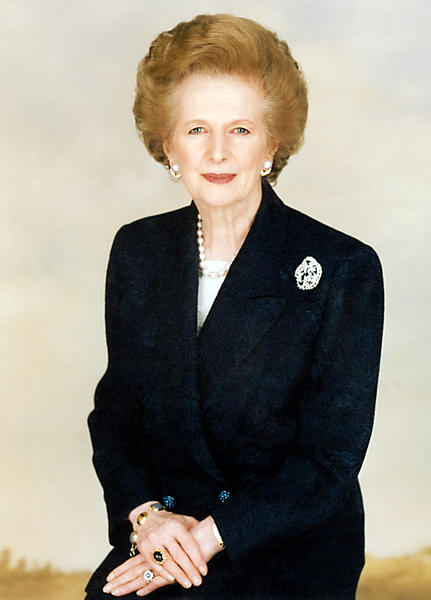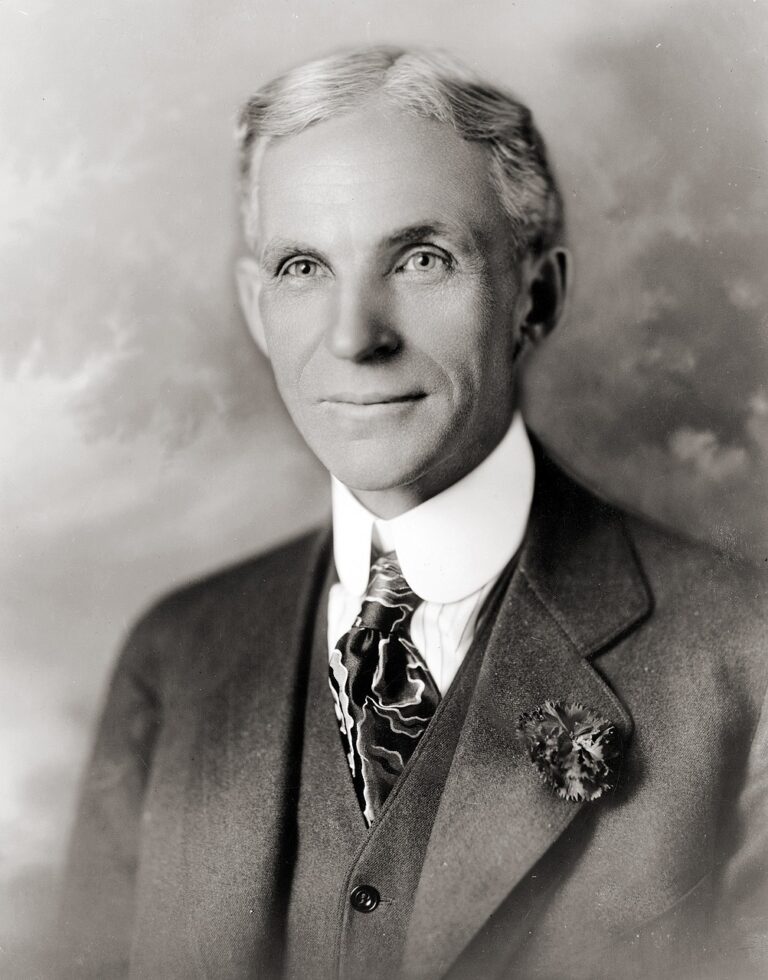Thatcher’s Leadership Legacy: Lessons in Conviction, Resilience, and Adaptability

Unleashing the Power of Thatcher’s Leadership Lessons
“Leadership is not about the next election, it’s about the next generation.” These profound words, spoken by one of the most influential leaders of the 20th century, encapsulate the essence of Margaret Thatcher’s leadership philosophy. Margaret Thatcher, the Iron Lady of British politics, left an indelible mark on the world through her strong convictions, unwavering determination, and transformative leadership. As we delve into the vast landscape of leadership development, there are few figures as compelling and instructive as Thatcher, who served as the Prime Minister of the United Kingdom from 1979 to 1990.
Margaret Thatcher’s rise to power was not only significant because she was the first female British Prime Minister, but also because of the profound impact she had on her nation and the world at large. Her leadership style was characterized by a resolute commitment to free-market capitalism, individual liberty, and strong national defense. Thatcher’s policies and reforms reshaped Britain’s economy, reinvigorated its global influence, and left an indelible mark on the political landscape of the era.
In this comprehensive article, we will explore the multifaceted dimensions of Thatcher’s leadership, examining the valuable lessons and timeless insights that can be gleaned from her remarkable journey. While her leadership style was not without controversy, it is undeniable that Thatcher’s legacy continues to inspire and provoke discussions on effective leadership.
Throughout her tenure as Prime Minister, Thatcher exemplified numerous leadership traits and principles that are worthy of study and emulation. From her clarity of vision and conviction to her resilience in the face of adversity, Thatcher’s leadership offers a rich tapestry of lessons for aspiring leaders across industries and sectors. Through the lens of her leadership, we will unravel the secrets behind her success and examine how these lessons can be applied in the context of modern-day leadership challenges.
This article is a voyage through Thatcher’s leadership journey, dissecting the key principles that underpinned her remarkable achievements. We will delve into her unwavering commitment to a clear vision, her ability to communicate effectively and persuade others, her courage in making difficult decisions, her aptitude for team-building and management, and her capacity to adapt and evolve in the face of changing circumstances.
As we embark on this exploration, it is crucial to acknowledge that effective leadership transcends political ideologies or personal opinions. Regardless of one’s stance on Thatcher’s policies, her leadership style undeniably left an indelible impact on the world. By analyzing her successes and failures, we can extract universal leadership lessons that are relevant across cultures, industries, and generations.
Join us as we embark on a transformative journey, drawing upon the wisdom and experiences of Margaret Thatcher. Through her stories and the lessons they impart, we will uncover the principles and strategies that can guide leaders in shaping a better future, not just for the next election, but for the next generation.
Understanding Margaret Thatcher’s Leadership Style
Margaret Thatcher’s leadership style was a unique blend of strength, conviction, and unwavering determination. To truly grasp the essence of her leadership, it is essential to examine the key characteristics that defined her approach and shaped her legacy.
First and foremost, Thatcher was known for her resolute convictions and unwavering commitment to her vision. She possessed a clarity of purpose that guided her every decision and action. Thatcher firmly believed in the power of free-market capitalism and individual liberty, and she spared no effort in championing these principles. Her resoluteness in the face of opposition earned her the moniker “Iron Lady” and solidified her reputation as a formidable leader.
However, Thatcher’s leadership style was not without its controversies. Her strong-willed approach often led to polarization and division. Critics argue that her policies exacerbated social inequality and marginalized certain segments of society. Nonetheless, it is undeniable that her unwavering commitment to her vision played a pivotal role in reshaping Britain’s political and economic landscape.
Thatcher’s leadership style was marked by her ability to communicate with conviction and passion. She possessed a commanding presence and a powerful oratorical skill, which she used to effectively convey her ideas to diverse audiences. Whether addressing her fellow politicians, engaging with the media, or speaking directly to the public, Thatcher’s communication style was characterized by clarity, directness, and an unwavering belief in her message. This ability to articulate her vision with precision and passion was instrumental in garnering support for her policies and initiatives.
Moreover, Thatcher’s leadership was defined by her courage to make difficult decisions. She was not afraid to take on powerful interest groups or challenge established norms if she believed it was in the best interest of the nation. Thatcher’s resolve in implementing economic reforms, such as privatization and deregulation, was met with resistance and skepticism. However, she remained steadfast in her convictions, willing to weather short-term political storms for the long-term benefit of the country.
Another notable aspect of Thatcher’s leadership was her talent for team-building and management. She surrounded herself with capable individuals who shared her vision and empowered them to make significant contributions. Thatcher understood the importance of delegating authority and fostering a culture of trust and accountability within her team. Her ability to assemble a competent and cohesive team played a crucial role in implementing her policies effectively and driving forward her agenda.
Lastly, Thatcher’s leadership was characterized by adaptability and flexibility. While she had a clear vision, she was not rigid in her approach. Thatcher recognized the need to adapt and evolve in response to changing circumstances and emerging challenges. Her ability to adjust her policies and strategies while staying true to her core values allowed her to navigate the complexities of a rapidly changing world.
Understanding Margaret Thatcher’s leadership style requires a nuanced examination of her key characteristics and their impact on her leadership approach. Her resolute convictions, effective communication, courage in decision-making, talent for team-building, and adaptability were all critical elements of her leadership style. By studying and analyzing these facets, aspiring leaders can glean valuable insights and lessons that can be applied in their own leadership journeys. Thatcher’s leadership, with its strengths and weaknesses, offers a compelling case study for those seeking to understand the complexities of leadership in the face of formidable challenges.
Leadership Lesson 1: Clarity of Vision and Conviction
One of the most significant lessons we can derive from Margaret Thatcher’s leadership is the power of having a clear vision and unwavering conviction. Thatcher’s leadership was defined by her resolute commitment to her vision of a free-market economy, individual liberty, and a strong Britain on the global stage. This clarity of vision provided her with a guiding compass, enabling her to make bold decisions and drive meaningful change.
Thatcher’s vision was not merely a vague aspiration; it was a concrete blueprint for transforming the nation. She believed that by embracing free-market principles, reducing the role of the state, and empowering individuals to take control of their economic destiny, Britain would flourish. This conviction permeated her policies and initiatives, shaping the trajectory of her leadership.
As aspiring leaders, we can learn the importance of cultivating a clear vision that serves as a North Star for our actions and decisions. A well-defined vision acts as a rallying point, providing direction and purpose for the entire organization. It helps align efforts, energize teams, and guide decision-making. Thatcher’s example teaches us that a leader with a clear vision can inspire others to work towards a common goal, even in the face of challenges and opposition.
Moreover, Thatcher’s unwavering conviction in her vision allowed her to navigate the turbulent waters of politics and maintain focus amidst adversity. She encountered fierce resistance and criticism throughout her tenure, yet she remained steadfast in her beliefs. This unwavering resolve not only fortified her leadership but also instilled confidence in her followers and supporters. It demonstrated that she was guided by principles rather than short-term popularity, making her leadership all the more impactful.
For aspiring leaders, Thatcher’s example reminds us of the importance of staying true to our convictions, even when faced with opposition or doubts. It requires strength and courage to hold steadfast in the face of adversity, but a leader who remains resolute in the pursuit of their vision can inspire trust and confidence in others. This lesson teaches us to anchor our leadership in a set of core values and beliefs that serve as a moral compass, guiding our actions and decisions.
Thatcher’s leadership demonstrated that a clear vision and unwavering conviction are not enough on their own. Effective communication played a pivotal role in translating her vision into action. Thatcher possessed exceptional communication skills, which she employed to articulate her ideas and rally support. She had a remarkable ability to distill complex concepts into accessible messages that resonated with people from all walks of life.
As leaders, we can learn from Thatcher’s communication prowess. The lesson lies in the importance of effectively conveying our vision to others, both within and outside our organizations. Clear and persuasive communication is a critical leadership skill that enables us to inspire, motivate, and engage others in pursuit of a shared vision. Thatcher’s leadership teaches us the value of crafting a compelling narrative, tailoring our messages to different audiences, and using persuasive techniques to garner support for our ideas.
Thatcher’s leadership imparts a crucial lesson on the power of clarity of vision and unwavering conviction. Leaders who cultivate a clear vision and hold steadfast to their convictions can inspire others, navigate challenges, and drive meaningful change. Thatcher’s example reminds us that effective communication is essential in translating vision into action. By integrating these lessons into our own leadership journeys, we can chart a course that propels us towards success and leaves a lasting impact on those we lead.
Leadership Lesson 2: Resilience and Persistence
Margaret Thatcher’s leadership was characterized by an unwavering resilience and persistence in the face of challenges and adversity. Throughout her tenure as Prime Minister, she encountered numerous obstacles and fierce opposition, yet she remained steadfast in her pursuit of her vision and goals. Her ability to persevere through difficult times provides valuable lessons for aspiring leaders.
Thatcher’s resilience was evident in her response to criticism and setbacks. She faced intense backlash and resistance from various quarters, including political opponents, interest groups, and even members of her own party. However, she did not allow these obstacles to deter her. Instead, she drew strength from her convictions and used criticism as fuel to further drive her agenda. Thatcher’s resilience enabled her to weather political storms and maintain focus on her long-term objectives.
Aspiring leaders can learn from Thatcher’s resilience and recognize that setbacks and criticism are inevitable parts of leadership. It is essential to develop the ability to bounce back from failures, rejections, and challenges. Resilience allows leaders to maintain a positive mindset, learn from setbacks, and continue moving forward despite adversity. Thatcher’s example teaches us that true leaders are not deterred by obstacles but are inspired to find creative solutions and persevere in the pursuit of their vision.
Thatcher’s persistence was another defining aspect of her leadership. She was known for her tenacity in pushing forward with her policies, even in the face of significant opposition. She firmly believed in the merits of her economic reforms and was unwavering in her commitment to implementing them. This persistence paid off, as her policies eventually led to significant economic transformations and revitalized Britain’s standing on the global stage.
The lesson for aspiring leaders is that persistence is a vital ingredient for achieving long-term success. Leadership is often a journey filled with ups and downs, and progress is rarely linear. Thatcher’s example teaches us the importance of staying the course, even when faced with resistance or setbacks. Leaders must have the fortitude to stay committed to their goals and navigate the inevitable challenges that arise along the way.
Thatcher’s resilience and persistence were rooted in her strong sense of conviction and belief in her vision. Her unwavering determination allowed her to persevere through difficult times, inspire others, and ultimately accomplish her goals. As aspiring leaders, we must cultivate a deep belief in our vision and develop the resilience and persistence necessary to overcome obstacles and setbacks.
Additionally, Thatcher’s leadership reminds us of the significance of self-care and well-being in maintaining resilience and persistence. Leaders who neglect their physical and mental health risk burnout and diminished effectiveness. Thatcher herself recognized the importance of taking care of oneself, ensuring she had the energy and resilience to tackle the challenges of leadership.
Thatcher’s leadership provides a powerful lesson in resilience and persistence. Aspiring leaders can draw inspiration from her ability to weather storms, remain committed to her vision, and drive transformative change. By developing resilience, maintaining persistence, and nurturing one’s well-being, leaders can navigate challenges and pursue their goals with determination. Thatcher’s example serves as a guiding light, illuminating the path to resilient leadership and the achievement of long-term success.
Leadership Lesson 3: Effective Communication and Persuasion
One of the hallmarks of Margaret Thatcher’s leadership was her exceptional ability to communicate effectively and persuade others. Thatcher possessed a commanding presence and a powerful oratorical skill that enabled her to articulate her ideas with clarity and conviction. Her communication prowess played a pivotal role in garnering support for her policies, mobilizing public opinion, and shaping the narrative around her leadership.
Thatcher’s communication style was characterized by its directness, clarity, and unwavering belief in her message. She had a knack for distilling complex concepts into accessible language that resonated with people from all walks of life. Whether speaking to fellow politicians, engaging with the media, or addressing the public, Thatcher’s communication was marked by its simplicity and effectiveness.
As aspiring leaders, we can learn valuable lessons from Thatcher’s communication strategies. Effective communication is a cornerstone of leadership, as it enables leaders to articulate their vision, inspire others, and drive meaningful change. Thatcher’s example teaches us the importance of crafting a clear and compelling message that resonates with the intended audience.
One of the key aspects of Thatcher’s communication style was her ability to connect with people emotionally. She understood the power of storytelling and used personal anecdotes, metaphors, and vivid language to engage the hearts and minds of her audience. By tapping into people’s emotions, Thatcher was able to create a sense of shared purpose and rally support for her ideas.
Additionally, Thatcher was skilled at tailoring her messages to different audiences. She recognized that effective communication requires understanding the perspectives, concerns, and aspirations of different stakeholders. Whether addressing business leaders, trade unions, or the general public, Thatcher adapted her language and framing to resonate with each group. This ability to connect with diverse audiences contributed to her ability to build coalitions and gain support for her policies.
Furthermore, Thatcher’s communication style was characterized by unwavering confidence in her ideas. She projected an aura of conviction and authority that inspired confidence in her leadership. Her unwavering belief in her message allowed her to effectively persuade others and overcome resistance. Thatcher’s example teaches us the importance of having confidence in our own ideas and communicating them with conviction. When leaders exude confidence and belief in their message, they are more likely to gain the trust and support of others.
Thatcher’s leadership also demonstrated the value of active listening as a crucial component of effective communication. She made a concerted effort to understand the concerns and perspectives of others, even if they differed from her own. This enabled her to engage in meaningful dialogue, address opposing viewpoints, and find common ground. By actively listening and empathizing with others, leaders can foster trust, build relationships, and bridge gaps in understanding.
Effective communication and persuasion are essential skills for leaders, and Margaret Thatcher’s leadership exemplified these qualities. Her ability to communicate with clarity, conviction, and emotional resonance allowed her to effectively convey her vision and gain support for her policies. Aspiring leaders can learn from her example and develop their own communication strategies to inspire, engage, and influence others. By crafting compelling messages, tailoring communication to different audiences, and actively listening to others, leaders can harness the power of effective communication to drive meaningful change and achieve their vision.
Leadership Lesson 4: Decision-Making and Courage
Margaret Thatcher’s leadership was characterized by her ability to make tough decisions and demonstrate unwavering courage in the face of adversity. Throughout her tenure as Prime Minister, Thatcher was faced with numerous challenges and dilemmas that required decisive action. Her resolute approach to decision-making and her willingness to stand by her choices provide valuable lessons for aspiring leaders.
Thatcher’s decision-making process was guided by her clear vision and her unwavering commitment to her principles. She possessed a strong sense of purpose and a deep understanding of the long-term impact of her choices. Thatcher recognized that leadership often necessitates difficult decisions that may be unpopular or controversial in the short term. However, she had the courage to prioritize the greater good over short-term political considerations.
One of the key lessons aspiring leaders can learn from Thatcher’s decision-making is the importance of having a strong moral compass. Leaders must align their decisions with their values and principles, even when faced with challenging circumstances or competing interests. Thatcher’s example teaches us that true leadership requires the courage to make choices that align with one’s vision and convictions, even when they are difficult or unpopular.
Moreover, Thatcher’s leadership demonstrated the significance of conducting thorough research and analysis before making decisions. She surrounded herself with knowledgeable experts, sought diverse perspectives, and carefully evaluated the potential consequences of each choice. Thatcher understood that making informed decisions was essential for effective leadership and long-term success.
Another aspect of Thatcher’s decision-making style was her ability to remain calm under pressure. She displayed a level-headedness that allowed her to assess situations objectively and make rational decisions, even in the midst of crises. This capacity to stay composed and focused in high-stakes situations is a valuable trait for leaders, as it inspires confidence and enables sound decision-making.
Thatcher’s leadership also teaches us the importance of learning from mistakes and adapting one’s approach. While she remained steadfast in her convictions, Thatcher was not immune to setbacks or missteps. However, she approached failures as opportunities for growth and learning. She adapted her strategies, adjusted her policies when necessary, and used past experiences to inform future decisions. This ability to learn from mistakes and adapt is critical for leaders in a constantly changing and evolving world.
Courage, as demonstrated by Thatcher, is a fundamental attribute of effective leadership. It is the courage to take risks, challenge the status quo, and make difficult decisions that may invite criticism or opposition. Thatcher’s unwavering courage allowed her to implement bold reforms, confront powerful interest groups, and forge a path of transformation for her nation.
Aspiring leaders can draw inspiration from Thatcher’s courage and recognize that leadership often requires stepping out of one’s comfort zone and taking calculated risks. It demands the willingness to confront adversity and stand by one’s convictions, even when faced with fierce opposition. Thatcher’s example teaches us that leadership requires courage and resilience in the face of challenges, and that true progress often comes from daring to venture into uncharted territory.
Thatcher’s leadership imparts vital lessons on decision-making and courage. Aspiring leaders can learn from her resolute approach to decision-making, rooted in a clear vision, moral compass, and careful analysis. They can draw inspiration from her unwavering courage to make tough choices and stand by her convictions. By embracing these lessons, leaders can navigate complex decision-making processes, exhibit the courage necessary to take risks, and drive meaningful change in their organizations and communities.
Leadership Lesson 5: Building and Managing a Team
Margaret Thatcher’s leadership was not only characterized by her personal strengths and convictions but also by her ability to build and manage a capable team. She understood that effective leadership extends beyond individual prowess and requires the support and collaboration of a competent and cohesive team. Thatcher’s approach to team-building and management provides valuable insights for aspiring leaders.
Thatcher surrounded herself with individuals who shared her vision and were aligned with her values. She sought out competent individuals who brought diverse perspectives and expertise to the table. By assembling a team of talented individuals, Thatcher was able to tap into a wide range of skills and knowledge, enabling her government to tackle complex challenges more effectively.
Furthermore, Thatcher empowered her team members and encouraged them to take ownership of their responsibilities. She recognized the importance of delegation, trusting her team to carry out their tasks with autonomy and accountability. This not only allowed her to focus on high-level decision-making but also fostered a sense of ownership and commitment among her team members.
Thatcher’s leadership style also emphasized open communication and collaboration within her team. She encouraged robust discussions and welcomed differing viewpoints. By creating an environment where diverse ideas could be openly expressed, Thatcher promoted innovation and critical thinking within her team. This collaborative approach not only strengthened the quality of decision-making but also instilled a sense of shared purpose and cohesion among team members.
Additionally, Thatcher understood the importance of recognizing and nurturing talent within her team. She provided opportunities for professional growth and development, allowing her team members to maximize their potential. Thatcher’s investment in the growth and development of her team members fostered loyalty, motivation, and a commitment to excellence.
Thatcher’s leadership example teaches aspiring leaders the significance of building a strong team. Effective leadership is not solely about individual achievements; it relies on the collective capabilities and synergy of a team. By selecting team members who align with the organization’s values and possess diverse skill sets, leaders can harness the power of collaboration and leverage the strengths of each individual.
Trust and empowerment are essential components of team management. Leaders must delegate authority and trust their team members to deliver results. This not only allows leaders to focus on strategic decision-making but also cultivates a sense of ownership and accountability among team members. Thatcher’s approach reminds us that empowering the team leads to greater engagement, motivation, and collective success.
Furthermore, fostering open communication and collaboration within the team is vital for effective leadership. Leaders should create an environment where diverse perspectives are encouraged, and constructive debates can take place. This promotes innovation, challenges conventional thinking, and leads to better decision-making.
Lastly, nurturing talent within the team is crucial for long-term success. Leaders should invest in the growth and development of their team members, providing opportunities for learning, skill-building, and career advancement. By recognizing and supporting individual potential, leaders can cultivate a high-performing team that is motivated, engaged, and committed to achieving shared goals.
Thatcher’s leadership exemplifies the importance of building and managing a competent and cohesive team. Aspiring leaders can learn from her example by assembling a team of talented individuals who share the organization’s vision and values. Empowering team members, fostering open communication, and investing in their growth are key elements of effective team management. By cultivating a strong team, leaders can leverage collective capabilities, drive innovation, and achieve extraordinary results. Thatcher’s leadership legacy reminds us that leadership is not a solitary endeavor, but a collaborative journey towards shared success.
Leadership Lesson 6: Adaptability and Flexibility
Margaret Thatcher’s leadership was marked by her ability to adapt and evolve in response to changing circumstances. She understood that leadership in a dynamic and ever-changing world requires flexibility and the willingness to embrace new ideas and approaches. Thatcher’s capacity to adapt provides valuable lessons for aspiring leaders facing the challenges of uncertainty and rapid change.
Throughout her tenure, Thatcher encountered numerous shifts and challenges, both domestically and internationally. She faced economic fluctuations, geopolitical transformations, and social changes that demanded a nimble and adaptable leadership approach. Thatcher demonstrated the ability to assess the evolving landscape, recalibrate strategies, and adjust policies as needed.
Thatcher’s adaptability was exemplified in her response to economic challenges. As Prime Minister, she inherited an economy grappling with high inflation and economic stagnation. Thatcher’s commitment to free-market principles led her to implement bold economic reforms, including privatization, deregulation, and market liberalization. These changes transformed the British economy, reigniting growth and productivity. Thatcher’s willingness to adapt existing economic structures and embrace new approaches played a pivotal role in revitalizing Britain’s economic standing.
Aspiring leaders can learn from Thatcher’s adaptability by recognizing the importance of staying attuned to changing circumstances and being open to new ideas. In a rapidly evolving world, leaders must constantly assess the external environment and internal dynamics to identify emerging trends, opportunities, and risks. This requires a willingness to challenge existing paradigms, reevaluate strategies, and adapt to evolving needs.
Thatcher’s leadership also highlighted the significance of embracing innovation and technological advancements. She recognized the transformative potential of technology and actively supported its integration into various sectors of the economy. Thatcher’s emphasis on technological advancement fostered innovation, productivity, and competitiveness. Her willingness to adapt to technological changes allowed her government to harness the benefits of advancements, driving economic growth and social progress.
In addition to economic adaptability, Thatcher’s leadership demonstrated the importance of flexibility in political decision-making. While she held firm to her principles, Thatcher was not rigid in her approach. She recognized the need for negotiation, compromise, and collaboration to navigate the complex landscape of political dynamics. Thatcher’s ability to seek common ground and build coalitions allowed her to advance her policies and initiatives even in the face of opposition.
The lesson for aspiring leaders lies in the ability to strike a balance between steadfast conviction and adaptive flexibility. Leaders must remain committed to their core values and vision while being open to alternative perspectives and adjusting their strategies when necessary. Thatcher’s example teaches us that adaptability is not a sign of weakness but a strength that enables leaders to respond effectively to changing circumstances and seize emerging opportunities.
Moreover, Thatcher’s adaptability was grounded in her continuous learning mindset. She recognized the importance of being intellectually curious and sought knowledge from a wide range of sources. Thatcher’s voracious appetite for learning and staying informed allowed her to make informed decisions and adapt her leadership style to address new challenges.
As aspiring leaders, it is essential to cultivate a mindset of continuous learning and self-improvement. This involves seeking diverse perspectives, engaging in lifelong learning, and embracing new experiences. By expanding our knowledge base and remaining open to learning, we can enhance our adaptability and stay ahead in an ever-evolving world.
Thatcher’s leadership exemplifies the importance of adaptability and flexibility in leadership. Aspiring leaders can learn from her example by recognizing the need to stay attuned to changing circumstances, embrace innovation, and adjust strategies as needed. A willingness to adapt and evolve allows leaders to navigate complexity, seize opportunities, and drive positive change. Thatcher’s legacy reminds us that adaptability is a critical leadership trait in an era defined by uncertainty and rapid change.
Charting a Transformative Future: Embracing Thatcher’s Leadership Legacy
Margaret Thatcher’s leadership journey provides a rich tapestry of lessons and insights for aspiring leaders. Throughout her tenure as Prime Minister, she demonstrated unwavering conviction, effective communication, resilience, courage, team-building, and adaptability. By studying and understanding the principles that underpinned her leadership, we can extract valuable takeaways that are relevant in today’s dynamic and complex world.
Thatcher’s leadership was defined by her clarity of vision and unwavering conviction. She had a clear vision for economic and political reform, and she remained steadfast in her commitment to her principles. Aspiring leaders can learn the importance of cultivating a clear vision that inspires others and guides decision-making. Thatcher’s example teaches us that leadership requires the courage to stay true to one’s convictions, even in the face of opposition or short-term challenges.
Effective communication and persuasion were also key strengths of Thatcher’s leadership. She possessed exceptional communication skills and the ability to connect with diverse audiences. Aspiring leaders can learn from her example by crafting clear and compelling messages, tailoring communication to different stakeholders, and using persuasive techniques to garner support for their ideas.
Thatcher’s resilience and persistence in the face of challenges and setbacks provide valuable lessons for aspiring leaders. She demonstrated the ability to bounce back from failures and remain focused on long-term goals. Leaders must develop resilience and persistence to navigate the ups and downs of leadership, learn from setbacks, and persevere in the pursuit of their vision.
Thatcher’s leadership also highlighted the importance of effective decision-making and the courage to make tough choices. Leaders must have the moral compass to align decisions with their values, conduct thorough analysis, and have the courage to prioritize the greater good over short-term popularity. Thatcher’s example teaches us that effective decision-making requires a strong sense of purpose, the willingness to take calculated risks, and the ability to adapt when necessary.
Furthermore, Thatcher’s approach to team-building and management emphasized the value of assembling a competent and cohesive team. Leaders must surround themselves with talented individuals who share their vision and empower them to take ownership of their responsibilities. Building a strong team, fostering open communication, and investing in the growth and development of team members are vital components of effective team management.
Lastly, Thatcher’s adaptability and flexibility in response to changing circumstances provide important lessons for leaders in a rapidly evolving world. Leaders must stay attuned to emerging trends, be open to new ideas, and adjust strategies accordingly. Thatcher’s example reminds us of the value of embracing innovation, technology, and continuous learning.
In conclusion, Margaret Thatcher’s leadership offers a wealth of lessons and insights for aspiring leaders. Her legacy serves as a guide for developing effective leadership skills and navigating the complexities of the modern world. By embracing the lessons of clarity of vision, effective communication, resilience, courage, team-building, and adaptability, leaders can chart a course toward transformative leadership. Thatcher’s leadership continues to inspire and provoke discussions on effective leadership, leaving a lasting legacy that resonates with leaders across generations and industries. As we reflect on her remarkable journey, we are reminded that leadership is a dynamic and ever-evolving pursuit, and the lessons learned from Thatcher’s leadership are timeless beacons to guide us in shaping a better future for generations to come.






